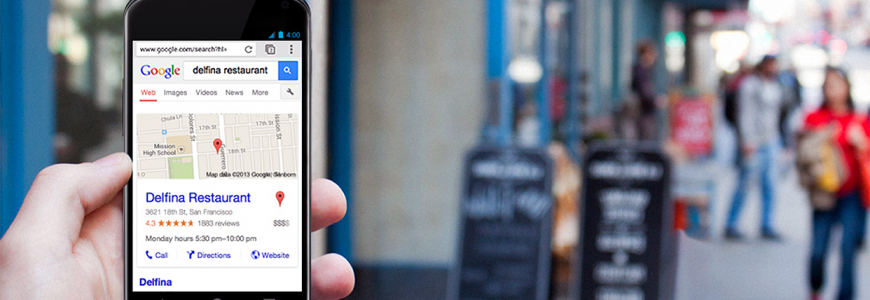You want to be one of the first local businesses people see when they search for products or services you offer. Obviously, you know that to be prominent and visible in local search results, you need placement on Google Maps. So, it makes sense that you would start your online marketing efforts with a Google Maps listing for your business.
There are a lot of reasons to believe Google Maps and a handful of other sites (namely Yelp and Facebook) are all you need to be visible on a local level. After all, those are the platforms that show up most often in local search results, and they’re the platforms many people turn to when looking for info on local businesses. However, don’t be fooled into thinking you can skate by with just a few online listings and nothing else. In reality, your local visibility largely depends on having a website.
In today’s post, we’ll look at how so many local business owners mistakenly believe they don’t need a website. Then, we’ll explain why websites remain vital to your presence in local search results.
Google Intensifies Focus on Local Search Results
First, let’s get some background on the importance of local search. In the last year or two, Google has been making significant user experience advancements to make on-the-go searching easier. As you may have heard, Google has been tailoring its search algorithm to cater to the rapid increase in smartphone usage.
This push to deliver a better search experience for mobile users is also what’s causing Google to prioritize local businesses. The logic: Most people search for local businesses on their smartphones because a) they’re on the go and want to find the nearest place quickly; or b) they want to call a business as soon as they find one that meets their needs.
As Google wants to make finding local businesses easier, it’s developing Google My Business pages that can act as fully functional landing pages. They contain photos, contact information, customer reviews, and even company status updates. Google even goes as far as directly asking users to submit photos and confirm addresses of businesses they’ve visited in order to flesh out these listings. In short, Google wants users to get all the info they need about a business as soon as they find it in search results, effectively eliminating the need for users to stray from Google’s search results page.
Social Media Joins the Local Search Party
Seeking to cater to their users’ smartphone habits, many social media channels, namely Facebook and Instagram, also have dedicated pages for local businesses. They function similarly to Google My Business pages in that they are essentially landing pages. They contain the business’s contact info, reviews, photos, and status updates. The end result is similar to Google’s: Users can find nearby businesses relevant to their interests without having to open a different app.
But You Can’t Rank in Local Search Results Without a Website
All of this emphasis on mobile and local search demonstrates why having a location-targeted web presence is more important than ever. However, many business owners misinterpret this trend and incorrectly believe all they need is a few listings and/or profiles on a handful of platforms. Unfortunately, that’s not how local search works.
If you want your business’s Google listing to appear in local searches, then you need to have a website. And not just any website, but a well optimized one at that.
Why? Because, as Marcus Miller of Search Engine Land reports, on-page SEO is still the number-one ranking factor in local searches. What do we mean by “on-page SEO”? It’s just a technical term for all of the content optimization on your website. You know, things like relevant keywords and images, well written content, appropriate headers and page titles, and so on. Your business needs a website with all of these elements in order to develop the kind of authority that will make Google want to feature it in search results.
Your Website Boosts Your Local Search Presence
The fact that SEO is the number-one factor in local ranking doesn’t mean your social media pages and Google My Business listings aren’t important. Customer reviews, social buzz, and matching business information (like service categories and contact details) all contribute to your local rankings, too. Plus, those pages and listings serve an important function by providing users with easy-to-access info about your business.
In fact, it’s not uncommon for users to see a local Google listing in the search results, get all the info they need from that listing, and call or visit that business without ever clicking on the business’s website.
Ideally, your goal is to dominate local search so this exact scenario plays out and generates lots of business for you. However, in order for that to happen, you need the potent SEO juice that only a website can provide. It may sound counterintuitive (“Really? I need a website just to power my Google listing?”), but if you’re serious about wanting local visibility online, a website is not optional.



